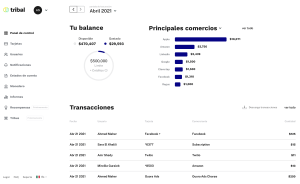The tidal wave of growth is upon us — an unprecedented economic boom that will manifest later this year, bringing significant investments, acquisitions, and customer growth. But most tech companies and startups are not adequately prepared to capitalize on the opportunity that lies ahead.
Here’s how marketing in tech will shift — and what you need to know to reach more customers and accelerate growth in 2021.
First and foremost, differentiation is going to be imperative. It’s already hard enough to stand out and get noticed, and it’s about to get much more difficult as new companies emerge and investments and budgets balloon in the latter half of the year. Virtually all major companies are increasing budgets to pre-pandemic levels, but will delay those investments until the second half of the year. This will result in an increased intensity of competition that will drown out any undifferentiated players.
The second half of 2021 will bring incredible growth, the likes of which we haven’t seen in a long time.
Additionally, tech companies need to be mindful not to ignore the most important part of the ecosystem: people. Technology will only take you so far, and it’s not going to be enough to survive the competition. Marketing is about people, including your customers, team, partners, investors, and the broader community.
Understanding who your people are and how you can use their help to build a strong foundation and drive exponential growth is essential.
Tactically, the most successful tech companies will embrace video and experimentation in their marketing — two components that will catapult them ahead of the competition.
Ignoring these predictions, backed by empirical evidence, will be detrimental and devastating. Fasten your seatbelts: 2021 is going to be a turbo-charged year of growth opportunities for marketing in tech.
Differentiation is crucial
The explosion of tech companies and startups seeking to be the next big thing isn’t over yet. However, many of them are indistinguishable from each other and lack a compelling value proposition. Just one look at the websites of new and existing tech companies will reveal a proliferation of buzzwords and conceptual illustrations, leaving them all looking and sounding alike.
The tech companies that succeed are those that embrace one of the fundamentals of effective marketing — positioning.
In the ’80s, Al Ries and Jack Trout published Positioning: The Battle For Your Mind and coined the term, which documented the best-known approach to standing out in a noisy marketplace. As the market heats up, companies will realize the need to sharpen their positioning and dial in their focus to break through the noise.
To get attention and build traction, companies need to establish a position they can own. The “mashup method: (Netflix but for coding lessons) is not real positioning; it’s simply a lazy gimmick.
It is imperative to identify who your ideal customer is and not just who could use your product. Focusing on a segment of the market rather than the whole is, perhaps counterintuitively, the most effective approach to capturing the larger market.




